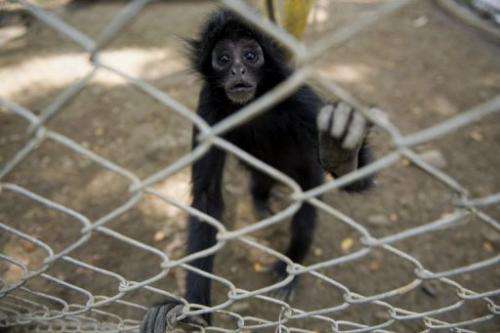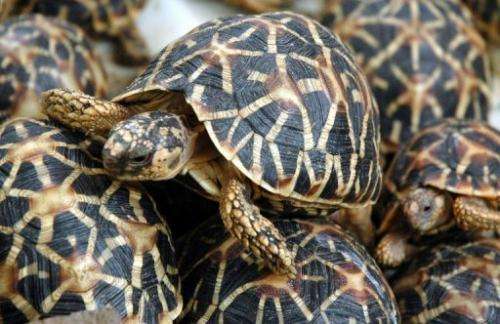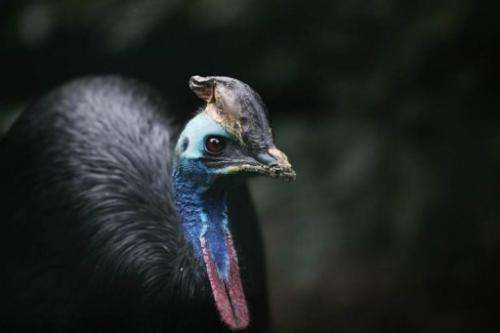Demand for exotic pets pushes species to the brink

Poisonous frogs, long-necked turtles, bears and chimpanzees may not be everyone's idea of an animal companion, but experts warn that demand for exotic pets is pushing some species closer to extinction.
With high price tags luring criminal gangs, conservationists are calling for increased efforts to crack down on the illegal trade, fuelled by the demands of collectors including in Europe, the United States and Asia.
"The demand for wild animals as pets is increasing and involves a wider range of species than ever before, and as a result the list of species threatened by trade is longer than ever," said Chris Shepherd of wildlife group Traffic.
As part of efforts to reverse the trend, the 178-member Convention on International Trade in Endangered Species (CITES) stepped up protection for dozens of types of turtles as well as tortoises at a meeting under way in Bangkok.
They are far from the only victims of this trade. Spiders, snakes, scorpions, beetles, exotic birds, big cats—wildlife protection campaigners have seen it all.
More species are involved in the pet trade than in meat and medicine, including highly venomous snakes and even cassowaries—large flightless birds from Papua New Guinea and Australia that can kick and kill you, Shepherd said.
"I don't understand the desire to keep an animal that can kill you, but people do," he said.

But there are limits even for collectors.
"I haven't seen any polar bear in the pet trade," Shepherd said.
While some people might think that taking a cheetah out on a leash or showing off an endangered lizard is less serious than killing a rhinoceros for its horn, environmentalists disagree.
"A lot of people don't realise that buying a pet can have a big impact on the conservation of the species, in fact the same impact as shooting an elephant," Shepherd said.
"You're removing a threatened animal from the wild, whether you kill it or stick it in a cage—from a conservation point of view it has the exact same result," he said.
Even more so, as for each endangered animal in a pet shop or home—from small reptiles to chimpanzees—10 others could have died during capture or transportation, experts say.
Hundred of apes, mostly babies, are sucked into the illegal trade every year, "and that means thousands of parent apes being killed", said Ian Redmond, founder of the Great Apes Survival Partnership (Grasp).

He believes celebrities like the late pop icon Michael Jackson, who had a chimpanzee called Bubbles, share the blame.
"If you are a Michael Jackson fan, why wouldn't you want to emulate him, or if you go to the movie and you like Clint Eastwood with an orangutan," Redmond said.
While the primates might look happy on the television, "it's not a very fulfilling life for an ape when you see the complexity of an ape society in the wild".
At the CITES meeting, international trade in some iconic species of turtles and tortoises—including the Burmese star tortoise—was completely banned, reflecting the extent of the threat.
"There are more than 300 species of turtles so if you are a collector you want these species," said Ron Orenstein, a zoologist and consultant for the campaign group Humane Society International.
"They're not just looking for a companion animal. They're collecting them like stamps, and prepared to pay high prices for a rare animal."
The highly endangered Roti Island snake-necked turtle, for instance, can fetch $2,000 each due to a scarcity that puts them at ever greater risk.
"Because it's rare, it becomes even more rare," Orenstein said.
Conservationists said they had a clear message for anyone thinking about a new pet but who cannot guarantee it was not stolen from the wild.
"It's simple, don't buy it!" said Shepherd.
(c) 2013 AFP




















